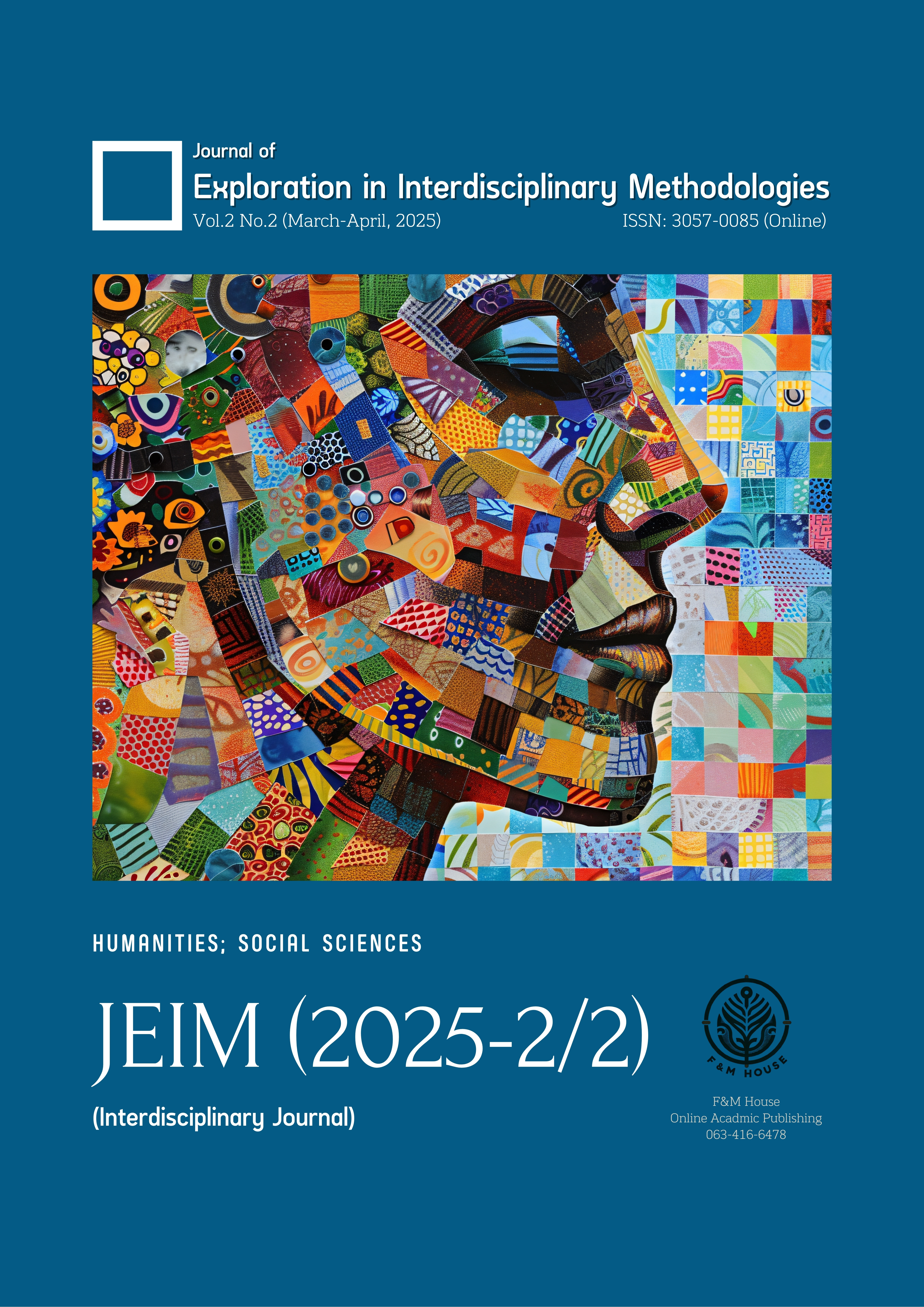Blending Traditional and Modern Political Thought: A Comparative Analysis of Buddhist Ethics and Thai Political Thought
คำสำคัญ:
Buddhist Ethics, Thai Political Thought, Compassion, Governance, Globalizationบทคัดย่อ
This paper explores the intersection of Buddhist ethics and Thai political thought, examining how traditional Buddhist principles are integrated into modern governance. By analyzing key Buddhist teachings, such as compassion, non-violence, and mindfulness, the paper highlights their influence on the political landscape in Thailand. It delves into the historical foundations of Buddhist ethics and their role in shaping Thai political systems, including governance, leadership, and societal duties. The paper also compares Buddhist ethical frameworks with Western political thought, emphasizing differences in community-oriented values versus individual rights. Through case studies and an exploration of social movements, it demonstrates how Buddhist teachings continue to impact modern political actions, fostering social justice, environmental sustainability, and community cohesion. The study concludes by examining the potential for resolving political conflicts through the application of Buddhist ethics, offering a unique approach to governance in the context of globalization and contemporary political challenges.
เอกสารอ้างอิง
(2008). Buddhist approaches to human rights: Dissonances and resonances. Retrieved from https://core.ac.uk/download/427512048.pdf
Ahn, J., Brown, G. W., Cousins, L. S., Cox, C., Forman, R. K. C., Gethin, R., Gombrich, R., et al. (2015). Is mindfulness Buddhist? (and why it matters). Retrieved from https://core.ac.uk/download/323083175.pdf
Alasuutari, P., Apfelthaler, G., Kainzbauer, A., Bakhtin, M. M., Bedi, H., Cameron, K. S., et al. (2014). Ambicultural blending between Eastern and Western paradigms: Fresh perspectives for international management research. Retrieved from https://core.ac.uk/download/29472150.pdf
Ambedkar, B. R., Scherer, B., Bodhiraksa, B., Brazier, D., Brien, K. M., Buddhadāsa Bhikkhu, et al. (2017). Incorporating mindfulness: Questioning capitalism. Retrieved from https://core.ac.uk/download/287636647.pdf
Baker, S., & Hess, M. (2001). Changing concepts of work in Thailand. Retrieved from https://core.ac.uk/download/268162182.pdf
Bielby, J. (2015). Comparative philosophies in intercultural information ethics. Retrieved from https://core.ac.uk/download/131211559.pdf
Bolotta, G. (2024). Siblings, comrades, friends: Kin(g)ship, hierarchy, and equality in Thailand’s youth struggle for democracy. Retrieved from https://core.ac.uk/download/604542125.pdf
Cambridge University Press. (2022). Buddhism and comparative constitutional law. https://doi.org/10.1017/9781009286022
Carmody, D. D. (2017). Reaching the Thai people of Southeast Asia: A model for discipleship and leadership training. Retrieved from https://core.ac.uk/download/132272675.pdf
Diamond, Z. M. (2021). Old pedagogies for wise education: A Janussian reflection on universities. Philosophies, 6, 64. https://doi.org/10.3390/philosophies6030064
Drollinger-Smith, N. S. (2014). Shadow masculinities: Nationalist Burmese monastics and the savage Muslim male. Retrieved from https://core.ac.uk/download/593677039.pdf
Enstedt, D., Larsson, G., Mantsinen, T. T., Cavallin, C., Falk, M. L., Magnusson, J., Roos, L. (2019). Handbook of leaving religion. BRILL eBooks. https://doi.org/10.1163/9789004331471
Ess, C. (2008). East–West perspectives on privacy, ethical pluralism and global information ethics. Retrieved from https://core.ac.uk/download/pdf/12237532.pdf
Ess, C. (2020). Interpretative pros hen pluralism: From computer-mediated colonization to a pluralistic intercultural digital ethics. Philosophy & Technology, 33, 551–569. https://doi.org/10.1007/s13347-020-00412-9
Henry, P. M. (2006). The sociological implications for contemporary Buddhism in the UK: Socially engaged Buddhism, a case study. Retrieved from https://core.ac.uk/download/130979882.pdf
Jackson, P. A. (1986). Buddhadasa and doctrinal modernisation in contemporary Thai Buddhism: A social and philosophical analysis. Retrieved from https://core.ac.uk/download/156622502.pdf
Jones, M. E. (2008). The social movement of spiritually engaged alternative education in Thailand against the background of reform and globalization. Retrieved from https://core.ac.uk/download/213816370.pdf
Kaimook, N. (2018). The study of Wai Phra Kao Wat in Bangkok, Thailand. Retrieved from https://core.ac.uk/download/161883307.pdf
Larsson, T. (2019). Secularisation, secularism, and the Thai state. Retrieved from https://core.ac.uk/download/491486720.pdf
Lorgunpai, S. (1995). World lover, world leaver: The Book of Ecclesiastes and Thai Buddhism. Retrieved from https://core.ac.uk/download/429705484.pdf
Luo, Q., Puett, M. J., & Smith, M. D. (2023). A perspectival mirror of the elephant: Investigating language bias on Google, ChatGPT, Wikipedia, and YouTube. Retrieved from http://arxiv.org/abs/2303.16281
Masinter, M. L. (2018). Habitats of mind: Dhamma, the world, and mindful activism. Retrieved from https://core.ac.uk/download/268330909.pdf
McDonnell, P. (2005). Buddhas & Bratwurst: Ethical identity in global contexts. Retrieved from https://core.ac.uk/download/269738194.pdf
Meyer, O. C. (2021). Countering ‘plastic addicted subjects’: Power, essentialized identities, and expertise in Thailand. Retrieved from https://core.ac.uk/download/475632259.pdf
Mitchell, A. C. (2012). An audio-visual ethnographic case study of international, rural, nonprofit public relations geared towards sustainable development. Retrieved from https://core.ac.uk/download/214064592.pdf
Nakada, M. (2012). Robots and privacy in Japanese, Thai, and Chinese cultures: Discussions on robots and privacy as topics of intercultural information ethics in ‘Far East’. Retrieved from https://core.ac.uk/download/pdf/12237646.pdf
Pattanachoti, O. (2012). Thai identity and its relationship to spirituality within the context of contemporary art: Transformation of faith and belief to images. Retrieved from https://core.ac.uk/download/pdf/15629569.pdf
Percy, I. D. (2016). Mindfulness in counselling and psychotherapy: Narratives from practitioners in Bhutan and Australia. Retrieved from https://core.ac.uk/download/195632032.pdf
Saengphueng, S. (2011). Managing religious heritage: Competing discourses of heritage and conflicts in cultural heritage management: A case study of Lamphun, Northern Thailand. Retrieved from https://core.ac.uk/download/160104001.pdf
Sharf, R. H. (2017). Is mindfulness Buddhist? (and why it matters). Retrieved from https://core.ac.uk/download/323083171.pdf
Shigetomi, S. (2013). Development and institutionalization of communitarian thought in Thailand. Retrieved from https://core.ac.uk/download/288456573.pdf
Swearer, D. K. (2001). Principles and poetry, places and stories: The resources of Buddhist ecology. Retrieved from https://core.ac.uk/download/73340469.pdf
Tsomo, K. L. (2015). Compassion & social justice: 14th Sakyadhita International Conference on Buddhist Women. Retrieved from https://core.ac.uk/download/232849155.pdf
Walter, P. (2006). Activist forest monks, environmental adult education, and the construction of civil society in Thailand. Retrieved from https://core.ac.uk/download/267185190.pdf







